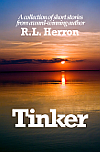Which is probably why so many of the writers I talk to seem preoccupied with time-management.
Many authors need to put blinders on, finding ways to simplify their experience and reduce the number of potential distractions. That might mean consistently keeping a single two-hour window sacred to ward off imagination derailment.
Ultimately, the literary exercise is about finding ways to defend something fragile—the quiet mood in which the imagination flourishes. You need to make sure you have a private self. Because the private self is where your writing comes from.
Beginnings Matter
Everyone knows that the opening page is crucial. It’s often an invitation, something that can make or break a reader’s interest in the rest of a book. Indeed, it is often he first line which must convince the reader. Stephen King has described spending “weeks and months and even years” working on first sentences, each one an incantation with the power to unlock the finished book.
And it’s true. Once I stumble on the first sentence, the rest of the novel is almost like taking dictation.
Follow the Headlights
For me it doesn’t help to be the kind of writer who plans meticulously. I find it much more productive to give myself some leeway in the early drafts. I throw out plans and assumptions, and make room to surprise myself.
I call this “following the headlights.” It’s like driving a car down a dark, unfamiliar road, simply describing the things that become visible with the light’s beam. If I capture the experience all along the way, the structure starts to take shape. What’s on the side of the road? What’s the weather? What are the sounds?
That’s how the story is revealed.
Dozens of writers have told me versions of the same thing. The writing they tend to think of as ‘good’ tends to happen when they get out of the way, let go a little bit, and surprise themselves.
Sound It Out
Of course, all this is easier said than done. In the absence of a concrete plan, how to know when you’re headed in the right direction? For many writers, the answer seems to lie in the sound of the words.
Plot can be overrated. What I strive for more is rhythm. It’s like taking dictation, when you’re really attuned to the rhythm of a character’s voice. Sound shows where the energy is, revealing which aspects of the story are important, which lines to follow. It can help with revision, too.
Many drafts in, when you can no longer see the work with fresh eyes, turn to your ears. Sound gives us clues about what is necessary and real. When you read your work aloud, which I always do, there are parts I might skip over, not really wanting to speak them. That’s your mind telling you those are the weak parts. It’s hard to find them otherwise.
It’s Supposed to be Difficult
One of the things that’s surprised me most is how much the process—even for best-selling and critically acclaimed writers—never seems to get any easier.
But good writers seem to be masters of deflecting existential despair, the malaise that takes hold in the middle of a taxing enterprise. It’s a promise to yourself to take things in stride, to remain cheerfully engaged no matter how difficult things get.
Find the Joy
Ultimately, good writers seem committed to finding the joy within their work, even if that means looking in the most unexpected places. I don’t write from despair. I write from difficulty. I write about people who may be in great pain, who are desperate and sometimes even miserable. But, despair, to me, means an absolute absence of hope.
It’s not just leaving room for hope and levity on the page. It’s about retaining one’s own capacity to find joy within the process, making sure the work’s difficulty never fully squeezes out delight.
The joy of being an author is the joy of feeling you can do anything. There are no rules. Ask your character, can you do this with confidence? Can you do it with style? Can you do it with joy?
Find the joy, and when you do, watch your stories improve.
**********
Gentle Readers, my books have all garnered some terrific reviews. You can see many of them by using the Amazon link below. Check them out. Better yet, buy one and read it. You just might like it.

**********
You’re invited to visit my author’s website, BROKEN GLASS to hear the remarkable radio interview about my novel “Blood Lake” on The Authors Show, or see my three local television interviews. You can also find me on Goodreads, or follow my shorter ramblings on The Twitter.
**********
Comments posted below will be read, greatly appreciated and perhaps even answered.
















